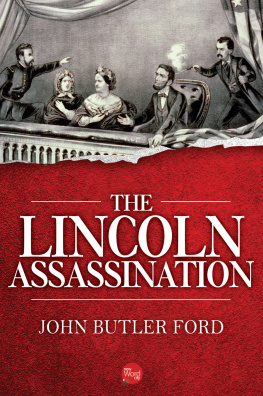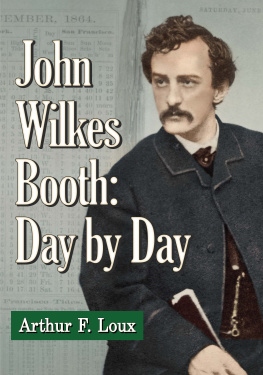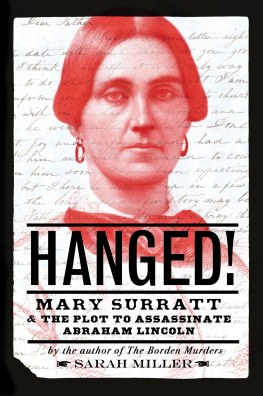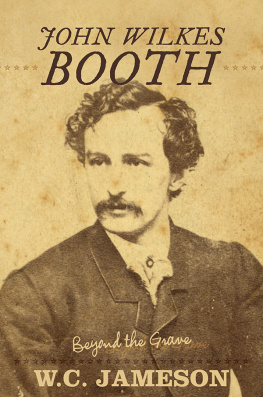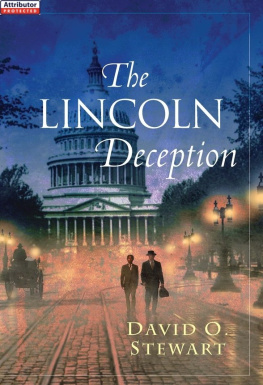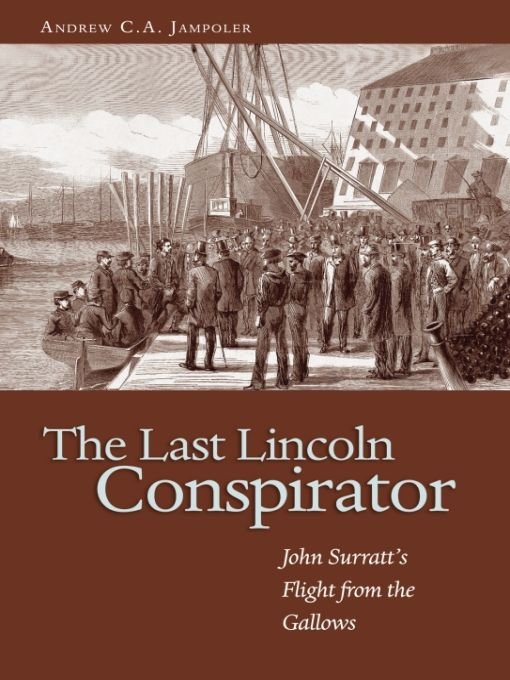Table of Contents
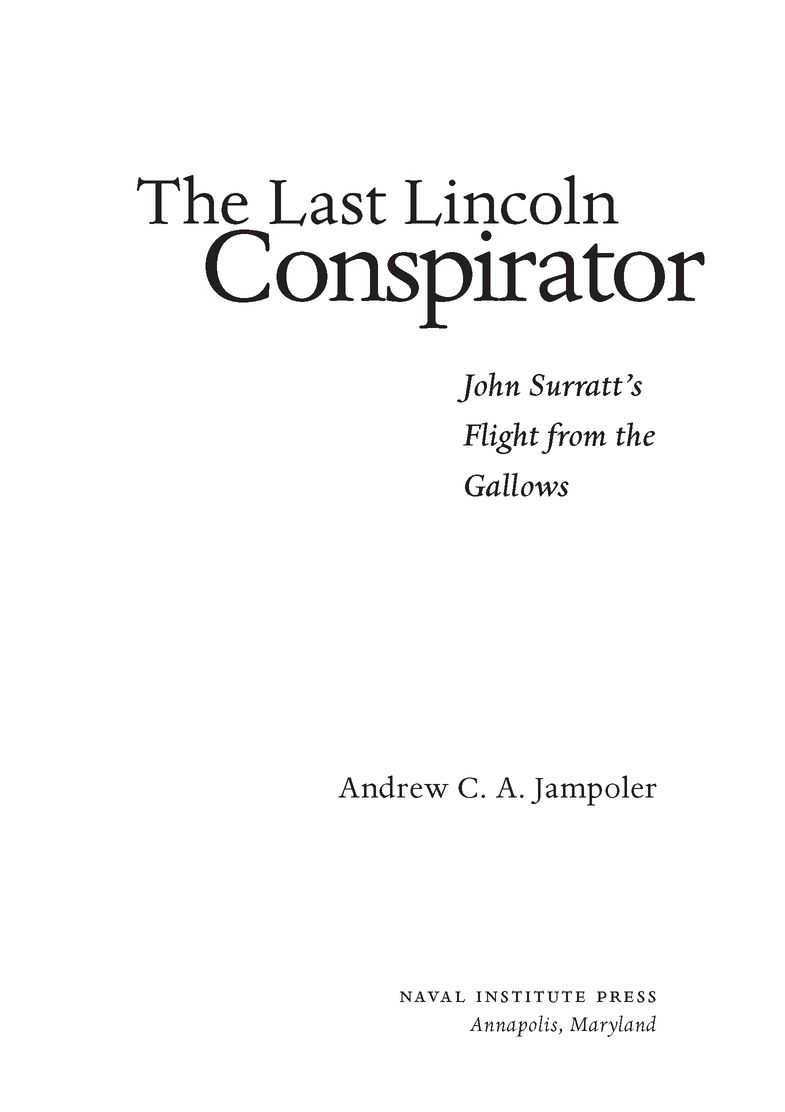
A SHIP HAS COME HOME WITH THIS YOUNG MAN SURRATT. Providence has given him almost two years to illustrate the fugitive and vagabond career of an assassin. He has taken his crime to the oldest parts of the world; put it in contact with the ocean; made partners in it the hereditary enemies of republican freedom; connected it with the strange old cities over our border; striven to forget it in the riot of continental capitals; carried it past the Alps; made the bluest waters of the earth red with it; connected the Sovereignty of the Catholic faith with the murder of the President of Democracy; fled from this discovered secret through the mountain fastness of brigands; uniformed in the livery of the Pope, till the olive and the orange orchards opened upon the Bay of Naples; thence he made this crime a part of the citadel of Malta, associating it with the crusades; bore it to Egypt, within sight of the Pyramids; and had very nearly, like the pursued of the Jews, found a refuge at the grave of Christ.
Here is the most extraordinary theme for an American romance since the days of Cortez. To this romance the flight of Booth was but a highwaymans ride.
THE STORY OF SURRATT, Chicago Tribune, FEBRUARY 24, 1867
Note to the paperback edition
ONE OF THE LOTS FOR SALE DURING THE AUCTION of Dr. John Lattimers large collection of Lincolniana at Gettysburg in November 2008 was an original letter from Commander William Jeffers, USN, to his squadron commander, Rear Admiral Lewis Goldsborough, USN. Jeffers was the commanding officer of USS Swatara, a third rate man owar then attached to Goldsboroughs European squadron, and the ship assigned to take John Surratt from Alexandria, Egypt, to Washington. The letter was unearthed months too late to be reflected in chapter 5 of this book. It lends wonderful additional color to the story told here.
Jeffers letter, dated January 5, 1867, reported that state prisoner John Surratt had been delivered to his ship, and was confined in single irons (hand cuffs), incommunicado, in a part of the captains own cabin, where he is more comfortably situated than any of the junior officers. Henri de Sainte Marie, the man who denounced Surratt, was also riding in Swatara. Jeffers described him as a babblera fellow of little head, less principle and evidently actuated in this affair by the prospect of the reward offered.
The Jeffers Letter was purchased by the Naval Historical Foundation, and has since been contributed to the collection of the Navy Department Library.
Andrew C. A. Jampoler
September 2009
Leesburg, Virginia
PREFACE
LT. WILLIAM F. LYNCH, U.S. NAVY, SPENT THE SPRING AND SUMMER OF 1848 in command of thirteen young volunteers, teetotalers all, who together made up the first official U.S. expedition to the holy land. This was the only time American sailors under arms and under their own flag were afloat on the ancient waters of the Dead Sea. Remarkably, the expedition into what was then a dusty outpost of the Ottoman Empire achieved its goalsthe principal one being to establish precisely the elevation of the Dead Seawith the loss of only one life. Disease and dangerous Bedouin tribes could have been expected to have levied a much higher toll on the explorers, especially so because 1848 was an epidemic year for cholera, first in South Asia and the Levant and then worldwide, the second great pandemic of this mysterious killer in the nineteenth century.
Lynch succeeded not only thanks to his leadership skills but also because he had the wit to solicit help when he needed it. Once ashore, he recruited a direct descendant of the Prophet Mohammad and an Arab chieftain with his armed and mounted escort to travel with the expeditions supporting land party. Beneath their protective umbrella, Lynchs sailors were able to do their work afloat in small boats on the Jordan River and the Dead Sea largely unmolested. Lynch also hired two expatriate American scholars to perform some of the expeditions scientific specimen collection.
Other help came from U.S. consuls in the major ports of the Mediterraneansome U.S. citizens, some notwho represented the nations diplomatic and commercial interests in the ports, in foreign capitals, and in the royal and imperial courts bordering that great sea. One such consul was William Winthrop, a Bostonian who served for thirty-five years (essentially his entire adult life; he died there) as the U.S. State Departments representative in Valetta, Malta. At the time, as it would again be one century later, the small islands superb port and chief city was the strategic and geographic center of the British Empires commanding position in the Mediterranean.
Eastbound from the United States by way of Gibraltar, Lynch rode in the USS Supply on the way to the holy land and his historic exploration of the Dead Sea. He stopped in Malta to pick up a pilot for the tricky passage through the islandstudded Aegean Sea. Westbound, Lynch disembarked at Malta from a chartered French barque, La Perle dOrient. He was searching for the Supply, months overdue at Beirut, to carry the survivors of his exhausted and diseased expedition back home. Both times he was assisted by Winthrop, who during his years in office would help countless American sailors and landsmen as they went about their business in the central Mediterranean.
Reading about Winthrops life and career while writing Sailors in the Holy Land (Naval Institute Press, 2005), I learned that nearly twenty years after Lynch and the consul parted (in fact, the year after Lynchs death) the doughty Winthrop had a speaking role in another little-known adventure. In late 1866 Winthrop attempted unsuccessfully to arrest a U.S. citizen and passenger aboard a transiting vessel, the Royal Mail Ship (RMS) Tripoli, steaming between Naples and Alexandria, Egypt. The man, an escaped deserter from the Pontifical Zouaves, was believed to have participated in the plot to assassinate President Lincoln the year before.
This book about John Harrison Surratt Jr., the fleeing conspirator and deserter, came from the accidental discovery that at least once something on the Maltese waterfront had gotten past Consul Winthrop.
ACKNOWLEDGMENTS
IM GRATEFUL FOR THE ASSISTANCE OF THE FOLLOWING, who generously contributed their special knowledge to my research efforts or helped otherwise: John Andrew, M.D. (Leesburg, Virginia), Prof. Lewis Becker (Villanova University School of Law, Villanova, Pennsylvania), Jim Burk (Oak Hill, Virginia), Eugene Canfield (Jamestown, New York), Sr. Catherine Clarke (the Vatican Library, Vatican City), Andr Debois, O.M.I. (Archives Deschtelets, Ottawa, Canada), John Duerkop (Kingston, Ontario), Robert Ellis, Mark Mollan, and Richard Peuser (National Archives and Records Administration, College Park, Maryland), Mary Fishback (Thomas Balch Library, Leesburg, Virginia), Joseph Geraci (National Postal Museum, Smithsonian Institution), Rev. Dr. J. A. Harding (Clifton Diocese Archives, Bath, England), Valerie Hart (Guildhall Library, London, England), Bart Houlahan (Devon, Pennsylvania), Roger Hull (researcher, Liverpool Record Office), Marilyn Ibach and Virginia Wood (Library of Congress, Washington, D.C.), August Imholtz (Beltsville, Maryland), Sr. Mary Joseph McManamon, O.S.B. (librarian, the Venerable English College, Rome), Dr. Lorenzo Innocenti (Perugia, Italy), Janna Israel (MIT, Cambridge, Massachusetts), Betsy Knight (Houston, Texas), Msgr. Maciej Michalsky, O.M.I. (Archivist General, Oblates of Mary Immaculate, Rome), Mike Musick (Harpers Ferry, West Virginia), Heidi Myers (Navy Department Library, Washington, D.C.), Judge Phil Nichols (Upper Marlboro, Maryland), Michael Pestorius (Austin, Texas), Msgr. Thomas Petrillo (Papal Nunciature, Washington, D.C.), Pat Purcell (National Railway Historical Society, Philadelphia, Pennsylvania), Kimberly Richards (archivist, Booth Library, Elmira, New York), Pier Luigi Rossi (Lucca, Italy), Billy Strasser (park ranger, Dry Tortugas National Park, Florida), John Stevenson (Trinity Research Services, Edinburgh, Scotland), Judge Nicholas Stroumtsos (New Brunswick, New Jersey), Dr. Meg Whittle (diocesan archivist, Liverpool, England), John Winrow (assistant curator, Liverpool Maritime Museum, England), and Marijke Zonneveld-Kouters (Nederlands Zouavenmuseum te Oudenbosch, Holland).


